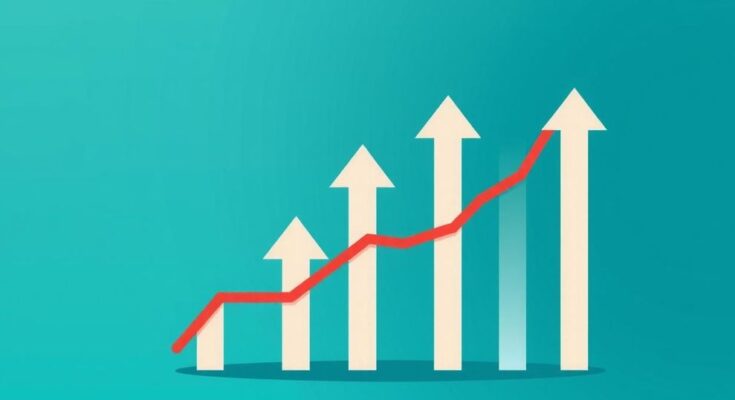Brazil’s Central Bank has raised its benchmark interest rate to 14.25% for the third consecutive time to address inflation, which has surged to 5.06% due to rising costs in essential sectors. The government has introduced policies to support consumers, whereas it diverges from the U.S. Federal Reserve’s more stable approach to interest rates. The ongoing economic landscape presents significant challenges for Brazil’s monetary policy.
Brazil’s Central Bank has raised its benchmark interest rate by one percentage point, bringing the Selic rate to 14.25%. This marks the third consecutive meeting that has seen such an increase, a decision predicted by all economists surveyed. The central bank’s aggressive stance aims to address surging inflation, following a report that highlighted the largest monthly price increase in three years, driven by vast government spending and a strong labor market that have intensified demand.
In February, Brazil’s annual inflation rate hit 5.06%, exceeding the central bank’s targeted ceiling of 4.5%. This inflation spike is primarily attributed to rising costs in housing, education, food, and beverages, which are further straining consumers facing increasing grocery bills. Despite these measures, inflation expectations in the market remain unanchored, with forecasts suggesting rates will remain above the 3% target at least until 2028.
In response to the economic challenges, President Luiz Inacio Lula da Silva’s administration has put forth new measures, including a proposal to relieve workers earning up to 5,000 reais from income tax and enhance loan options for private sector employees. These initiatives aim to stimulate consumption under tightening monetary conditions.
While Brazil pursues this strict monetary policy, it contrasts sharply with the U.S. Federal Reserve, which opted to maintain its benchmark rate steady, reflecting expectations of slower economic growth and elevated inflation. Under the leadership of Gabriel Galipolo, Brazil’s central bank continues to prioritize stabilizing inflation and ensuring long-term economic health amid complex fiscal challenges.
The Brazilian Central Bank’s recent interest rate hike to 14.25% underlines its commitment to combating inflationary pressures exacerbated by excessive government spending and a dynamic job market. Despite the aggressive measures, inflation expectations remain concerning, leading the government to implement policies aimed at consumer support. Comparatively, the Brazilian approach diverges from that of the U.S. Federal Reserve, suggesting a different economic trajectory for both nations moving forward.
Original Source: www.indexbox.io




